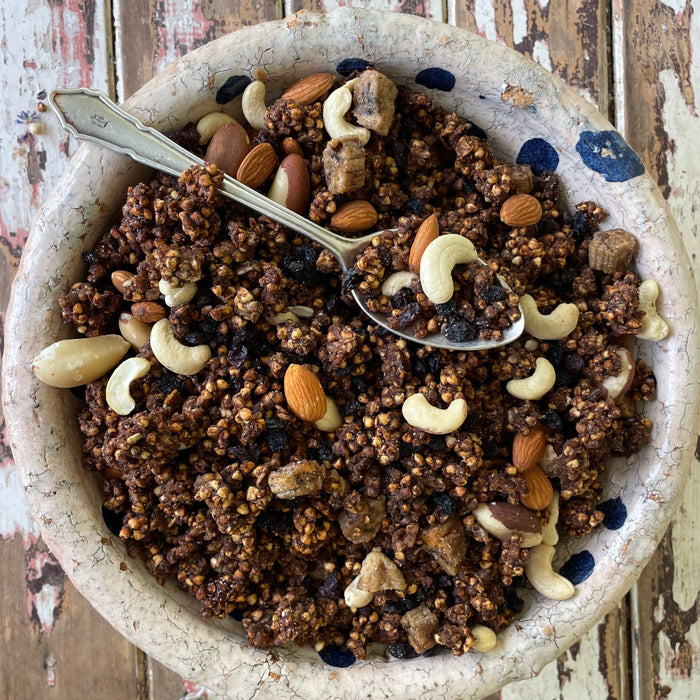Plastics were first introduced in the 1940's and were made to last forever. We now use them once, throw them away and they are either buried under the earth where they leach out nasty chemicals into groundwater and soil, or they float on the oceans to be consumed by marine life, eventually killing them. Why are plastics so harmful to our health? Plastics contain a substance called Bisphenol A or BPA. BPA is an estrogen-mimicking chemical which is taken into our bodies and disrupts our hormonal system. These products are sometimes also called xenoestrogens (i.e. estrogens outside of our bodies that once ingested, trick our bodies into using them as estrogen and thereby disrupting our finely tuned endocrine system). Exposure to BPA has been linked to many serious illnesses including learning and behavioural problems in children, early puberty in girls and fertility problems, decreased sperm count, prostate and breast cancer, diabetes and obesity.
BPA is banned in Canada and Europe and many products are now declared "BPA free". However, the substitute BPS, has unfortunately been shown in testing to be a hormone disruptor also. Phthalates, used to make more flexible plastics like PVC, are also hormone disruptors and have been linked to reduced sperm counts, testicular atrophy and liver cancer.
In 2013 the World Health Organisation and the United Nations Environment Programme said "The diverse systems affected by endocrine-disrupting chemicals (i.e. plastics) likely include all hormonal systems and range from those controlling development and function of reproductive organs to the tissues and organs regulating metabolism and satiety.
Effects on these systems can lead to obesity, infertility or reduced fertility, learning and memory difficulties, adult-onset diabetes or cardiovascular disease, as well as a variety of other diseases". We are all exposed to chemicals from plastic every day through the air, dust, water, food and consumer products and eight out of ten babies have measurable levels of phthalates in their bodies according to a report published in The Royal Society in 2009 on Plastics, The Environment and Human Health.
Some sources of plastics that may be affecting you are: personal care products and cleaning products, plastic lining of canned goods, flame retardants in clothes and furniture, building materials like chipboard and kitchen cupboards, plastic coating of wiring in houses (that 'off-gas' when they become heated), plastic containers in the kitchen, plastic drink bottles and plastic baby bottles and toys, even the plastic pen you may be chewing on right now or the mobile phone you are using!
How to reduce your exposure to these hormone disrupting plastics:
- Eat organic fruits, veggies and free-range eggs.
- Buy organic Bulk Food, avoiding plastic wrapping and containers. Choose cellophane packaged bulk food like we use at Santos Organics.
- Only buy products from glass containers or bottles where possible.
- Look for BPA free tinned goods if there are no alternatives.
- Store your food in glass and avoid plastic or glad wrap – the popular new beeswax wraps can replace glad wrap in your fridge.
- Make your own deodorant, toothpaste and beauty products.
- Buy clothes and furnishings made from natural materials and avoid flame retardant materials.
- Choose natural building materials, flooring etc. instead of vinyl.
- Choose toys made of natural wood or fabrics.
- Make your own cleaning products from bi-carb of soda, apple cider vinegar and essential oils.
- Replace your vinyl shower curtain with a fabric one.
How to detox plastic from your body:
- Include more of the brassica vegetables in your diet, i.e. cabbage, broccoli, brussel sprouts and cauliflower. These, as well as radishes, mizuna, watercress, collard greens and kale will increase your detoxification pathways.
- Probiotics and fermented foods. Research shows that Bifidobacterium breve and Lactobacillus casei were found to extract BPA from the blood of mammals and excrete it through the bowels. Probiotics also strengthen the gut and help to break down other hormone disrupting chemicals.
- Black tea has been found to reduce BPA toxicity, drink loose leaf and organic for best results.
- BPA has been found in sweat so induced sweating through saunas can help to detox BPA.
- Quercetin, a flavonoid found in fruits and veggies has been found to ameliorate toxicity from BPA. It is available in supplement form and is useful for dealing with allergies.
- There is also a homeopathic remedy for plastic that can be used for detoxing. Speak to your local homeopath about this.
There is now nowhere on earth or sea that is not affected by plastic and yet we still wonder how we managed without it. Suzanne Staples ND DBM Naturopath Herbalist Homeopath Email suzestaples@gmail.com






